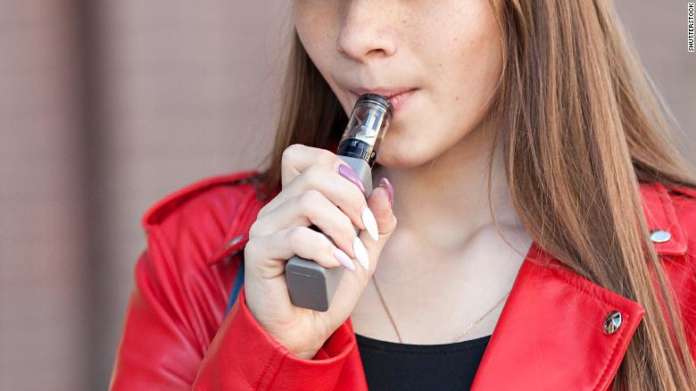
Concord, NH – The first person with lung injury associated with e-cigarette use or “vaping” has been identified in New Hampshire after an investigation by the NH Department of Health and Human Services (DHHS) Division of Public Health Services (DPHS).
The individual was an adult from Sullivan County, who developed respiratory symptoms and had chest imaging showing evidence of lung injury, consistent with other cases reported nationally. This person reported recent vaping of nicotine products. The individual was hospitalized but has since been discharged.
DHHS has been working closely with healthcare providers and with the investigation conducted by the Centers for Disease Control and Prevention (CDC) and the U.S. Food and Drug Administration (FDA) to identify individuals affected by vaping so we can better understand what is causing these preventable life threatening health complications.
“Vaping-associated lung injury is a national problem, and unfortunately New Hampshire is the latest state to be included in the national outbreak investigation,” said Dr. Benjamin Chan, NH State Epidemiologist. “The ongoing investigation into these illnesses has not yet identified a specific cause. And even though a majority of patients report vaping THC products, some have reported only vaping nicotine products. Until we have more information from the national investigation, no vaping is considered safe.”
As of October 1, there are 1,080 lung injury cases reported from 48 states and 1 U.S. territory. Of these reported cases, eighteen deaths have been confirmed in 15 states. All reported patients have a history of e-cigarette/vaping product use. The majority (80%) are under 35 years old, and more than one-in-three (37%) are 20 years of age or younger, highlighting the significant impact this outbreak is having on our adolescents and young adults. The latest findings from the national investigation suggest products containing tetrahydrocannabinol (THC) play a central role in the outbreak because the majority of affected individuals have reported THC vaping product use; however, a number of individuals have reported only nicotine e-cigarette use. The specific chemical exposure causing the lung injuries remains unknown at this time as no single product or substance has been linked to all lung injury cases.
Symptoms of vaping-related lung injuries include cough, shortness of breath or chest pain. Some patients have also experienced gastrointestinal symptoms such as nausea, vomiting, diarrhea or abdominal pain. Other symptoms include fatigue and fever. Individuals who use e-cigarettes or vaping products and are experiencing any of these symptoms should ask their healthcare provider to check for lung injury.
The CDC recommends not using e-cigarettes, or vaping products, particularly those containing THC. E-cigarettes should not be used by youth, young adults, pregnant women, or adults who do not currently use tobacco products. Adults who use e-cigarettes because they have quit smoking should be offered FDA approved quit therapy, and should not return to smoking cigarettes.

